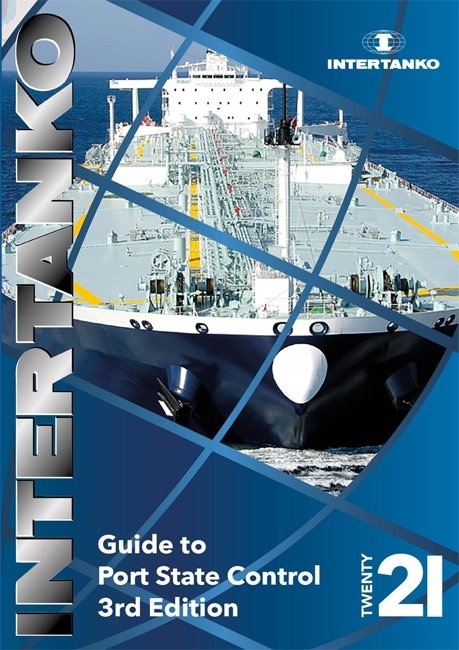Código: BINT033
This publication focussed specifically on Port State Control aims to improve the performance of all ship types, not just tanker, by bringing into one document the information on different PSC regimes.
Weight(kg):
0.80
$152.00 desde IVA
Cant.Añadir
Port State Control (PSC) is the inspection of foreign ships in national ports to verify that the condition of the ship and its equipment complies with the requirements of international regulations, and that the ship is manned and operated in compliance with these rules. Many of the IMO’s most important technical conventions contain provisions for ships to be inspected when they visit foreign ports to ensure that they meet IMO requirements. The responsibility for ships’ standards rests with owners, Class Societies and the Flag State – but Port State Control (PSC) provides a "safety net" to identify substandard ships which experience has shown to be extremely effective.
The first PSC agreement to identify and exclude substandard ships was drafted after the Amoco Cadiz incident in March 1978 and resulted in the Paris Memorandum of Understanding (MoU), which came into effect in Europe in 1982. There are now nine regional agreements on Port State Control in effect, which cover Europe and the north Atlantic (Paris MoU); Asia and the Pacific (Tokyo MoU); Latin America (Acuerdo de Viña del Mar); the Caribbean (Caribbean MoU); West and Central Africa (Abuja MoU); the Black Sea region (Black Sea MoU); the Mediterranean (Mediterranean MoU); the Indian Ocean (Indian Ocean MoU); and the Persian Gulf (Riyadh MoU). The United States Coast Guard maintain the tenth PSC regime.
The shipping industry has made considerable progress and continues to do so, but incidents show that there are still ships that slip through the net. It is these ships that PSC targets through sharing of data and improved training of inspectors to strengthen their abilities and better direct their efforts.
INTERTANKO’s Membership has long recognised the value of well-operated and maintained tankers and has developed criteria to ensure its own quality standards. Alongside the Membership criteria, the Association and its Vetting Committee have supported owners through the production of a Guide to the Vetting Process which includes advice on both the PSC and commercial vetting processes for tankers.
FREE DELIVERY for non-trade customers for orders £75 or over to any address in the UK or Ireland.
UK Standard Delivery – Usually 2-3 days
UK Next Day Special Delivery – Next day before 1pm (Sundays Excluded)
UK Express Courier – Next working day before 5pm
Ireland Express Courier – Next working day before 5pm
Europe Economy Courier – Usually 5-7 days
Europe Express Courier – Usually 1-2 days
Worldwide Express Courier – Usually 2-5 days depending on your exact location
If you live in a remote area, a ‘remote area surcharge’ may be applicable when booking your order on with a courier service for dispatch. A remote area surcharge is an additional fee that is added by a courier service for delivery to a remote location. We will always contact you about this should it ever happen, as it is not a fee that applies during the checkout phase of the online ordering process, but you will be expected to pay it should you wish to receive your order.
Orders placed with us will be dispatched within one to two working days. Dispatch is dependent upon the time when the order is received and provided that all goods ordered are immediately available. If any items are temporarily out of stock, we will endeavour to dispatch the complete order within 7 working days. We always endeavour to ship complete orders and try our best not to ship part orders as a general rule, but on occasion this rule may have grounds for it to be broken due to the varying nature of orders received. We will always try our best to communicate the status of your order should any issue arise that we feel you need to be made aware of.
UK Standard Delivery – Usually 2-3 days
UK Next Day Special Delivery – Next day before 1pm (Sundays Excluded)
UK Express Courier – Next working day before 5pm
Ireland Express Courier – Next working day before 5pm
Europe Economy Courier – Usually 5-7 days
Europe Express Courier – Usually 1-2 days
Worldwide Express Courier – Usually 2-5 days depending on your exact location
If you live in a remote area, a ‘remote area surcharge’ may be applicable when booking your order on with a courier service for dispatch. A remote area surcharge is an additional fee that is added by a courier service for delivery to a remote location. We will always contact you about this should it ever happen, as it is not a fee that applies during the checkout phase of the online ordering process, but you will be expected to pay it should you wish to receive your order.
Orders placed with us will be dispatched within one to two working days. Dispatch is dependent upon the time when the order is received and provided that all goods ordered are immediately available. If any items are temporarily out of stock, we will endeavour to dispatch the complete order within 7 working days. We always endeavour to ship complete orders and try our best not to ship part orders as a general rule, but on occasion this rule may have grounds for it to be broken due to the varying nature of orders received. We will always try our best to communicate the status of your order should any issue arise that we feel you need to be made aware of.


 GBP (£)
GBP (£)
 EUR (€)
EUR (€)

 English
English  Dutch
Dutch  French
French  German
German 






